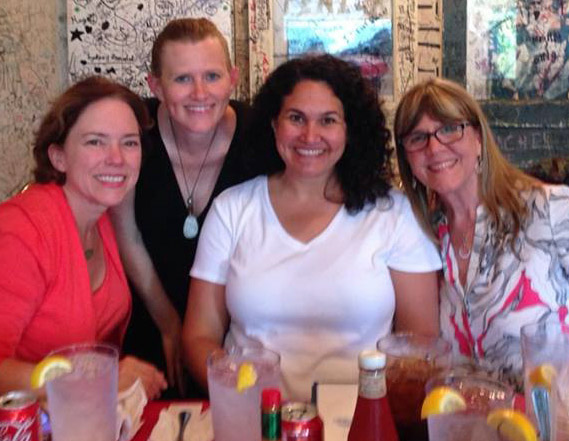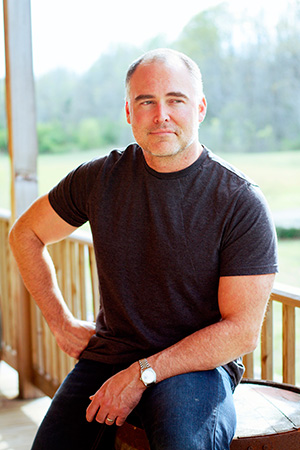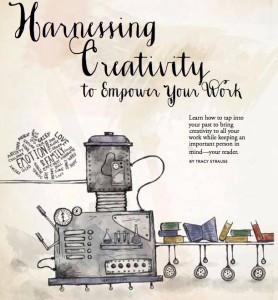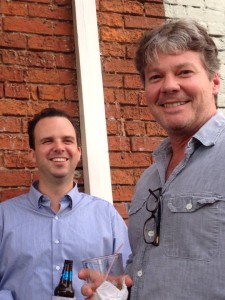
Last Wednesday I gave a preview of the YOK Writing Workshop I would be attending this past weekend in Oxford, Mississippi. I usually write a fairly comprehensive “review” of this workshop every year when I get home. This year I’m only going to hit a few “highlights.” It’s not because the workshop wasn’t wonderful—it was! It’s because the main thing I got from the workshop was “go home and finish revising your novel!” And I’ll never get that done if I spend 2-3 hours on my blog posts three times a week. So, here are a few reflections on a terrific weekend.
The craft talks given by authors Ace Atkins and Julie Cantrell were full to overflowing with wisdom from their years of writing and publishing.

Notes from Ace: (“The Importance of Truth in Fiction”)
Make books as authentic as possible—the characters will be more believable. But you don’t have to follow the age-old adage, “Write what you know.” Instead, write what you can learn about—what you are interested in. The TRUTH of the people and locations and stories needs to come from real life. Observe people around you in different settings and then write whatever works for you. And don’t just write what might sell. Write the book you want to write.
Notes from Julie: (“Ten Tips to Create Realistic Characters in Fiction”)
Push your characters into choices that will be life-changing for them. Show the reader their hopes and fears. The tension between those hopes and fears will drive the plot and make the characters more complex. Give them chances and let them succeed… or fail. Go for a blend of plot-drive and character-driven writing. By showing the characters’ emotional complexity and spiritual development, we see who they are at their core, and we care about what happens to them. But without a great plot/story with a well-drawn narrative arc (Julie recommends arcs in each chapter) we won’t keep reading the book.
Both Ace and Julie encouraged us to take ourselves (the writers) out of the book in order to let the characters speak. Use your own experiences and/or do tons of research to get the backstory needed to hold up the narrative, but then back away and only show the reader what he needs to see—like zooming in on a photograph in which the background doesn’t help the scene.
 Just before the workshop I had read another good article in the July/August issue of Writer’s Digest that spoke to this last point. Tracy Strauss, in “Harnessing Creativity to Empower Your Work,” said:
Just before the workshop I had read another good article in the July/August issue of Writer’s Digest that spoke to this last point. Tracy Strauss, in “Harnessing Creativity to Empower Your Work,” said:
“We must shift our focus from ourselves to write with an awareness of others; we must make the choice to move (on the page) from having a monologue to engaging in a dialogue with our audience…. By taking our specific circumstances and tapping into universal themes, we create a more relatable story. And in doing so, our story transcends our individual selves and becomes meaningful to others.”
When Scott Morris’s critique group workshopped the first chapter of my new novel, Red, Black, and Silver, this weekend, they gave me some great feedback, encouraging me that this could be a good project. I submitted the synopsis and first chapter—not so much for close editing (which will come much later)—but because I really wanted to know if the idea for the book was viable. Again, Strauss addresses this in her WD article:
“Once we’ve produced a viable draft, exposing it to an audience-people whose opinions are astute and trustworthy, including experts in the publishing industry—is valuable. We might do this by enrolling in formal writing workshops led by successful authors and/or editors, or by participating in more informal writers’ groups—any venue in which we can expose our manuscript to other perspectives.”

Since I never went for an MFA in writing, I have made use of a dozen or more such workshops over the past seven years to get those all-important perspectives. I’ve also hired freelance editors and engaged beta readers (friends who are good writers who have had some publishing success) to gain the feedback I need to shape my work into something that readers will care about. Each time I return home from one of these workshops, I’m inspired to take their input and get back to work on the project at hand. Scott’s last words of advice to me before leaving the workshop?
Put the new novel aside and finish revisions on Cherry Bomb and send it back to the agent as soon as possible!
Summer school has begun. Thanks for reading!
Thanks for sharing insights from the workshop. I have never attended a workshop, but am considering doing so in the future, so it was nice to hear about your experiences with them. Best wishes on completing your revisions.
Thanks for reading, Joanne. I highly recommend this workshop, as well as CNF (Creative Nonfiction) workshops and conferences, which are geared, obviously, more to folks writing nonfiction. For those of us not going the MFA route, the manuscript critique process, as well as the craft talks and fellowship, at these workshops is so valuable.